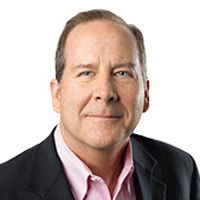The Path to Making a Charitable Impact
Giving back to the community or supporting important organizations is a noble cause. But you need to consider the options available to have the greatest impact.

Profit and prosper with the best of Kiplinger's advice on investing, taxes, retirement, personal finance and much more. Delivered daily. Enter your email in the box and click Sign Me Up.
You are now subscribed
Your newsletter sign-up was successful
Want to add more newsletters?

Delivered daily
Kiplinger Today
Profit and prosper with the best of Kiplinger's advice on investing, taxes, retirement, personal finance and much more delivered daily. Smart money moves start here.

Sent five days a week
Kiplinger A Step Ahead
Get practical help to make better financial decisions in your everyday life, from spending to savings on top deals.

Delivered daily
Kiplinger Closing Bell
Get today's biggest financial and investing headlines delivered to your inbox every day the U.S. stock market is open.

Sent twice a week
Kiplinger Adviser Intel
Financial pros across the country share best practices and fresh tactics to preserve and grow your wealth.

Delivered weekly
Kiplinger Tax Tips
Trim your federal and state tax bills with practical tax-planning and tax-cutting strategies.

Sent twice a week
Kiplinger Retirement Tips
Your twice-a-week guide to planning and enjoying a financially secure and richly rewarding retirement

Sent bimonthly.
Kiplinger Adviser Angle
Insights for advisers, wealth managers and other financial professionals.

Sent twice a week
Kiplinger Investing Weekly
Your twice-a-week roundup of promising stocks, funds, companies and industries you should consider, ones you should avoid, and why.

Sent weekly for six weeks
Kiplinger Invest for Retirement
Your step-by-step six-part series on how to invest for retirement, from devising a successful strategy to exactly which investments to choose.
You’ve achieved great professional success. You’ve been fortunate to ensure your family is taken care of financially. Now, you’re ready to give back to your community or support worthwhile organizations that further causes you believe in.
Perhaps you and your family sat down and developed a list of organizations you want to support. You may even have a number in mind to draw from when others approach you to make a financial difference. While this “checkbook philanthropy” approach can feel like you’re doing some immediate good, is giving back reactively really part of a strategic giving plan? Is it better to make ongoing donations of varying amounts to a handful of nonprofit organizations? Will going either of these routes accomplish your larger philanthropic mission?
You need to ensure your financial support makes the greatest impact and is the most logical charitable path for you. You’ve thought about “where” to direct your giving, but now you have to consider the “how.” Many new channels are emerging that are transforming the charitable giving process. Ultra-high-net-worth individuals and their families are exploring hybrid techniques, such as crowdsourcing, impact investing, green investing and social investing.
From just $107.88 $24.99 for Kiplinger Personal Finance
Become a smarter, better informed investor. Subscribe from just $107.88 $24.99, plus get up to 4 Special Issues

Sign up for Kiplinger’s Free Newsletters
Profit and prosper with the best of expert advice on investing, taxes, retirement, personal finance and more - straight to your e-mail.
Profit and prosper with the best of expert advice - straight to your e-mail.
If you’re not prepared to explore these options, there are established avenues available that allow you to be disciplined and intentional about how you and your family manage your donations. These options can also provide a positive impact upon your family and be a part of your strategic giving plan, whether involving family with directing the charitable giving, creating mission statements or obtaining an overall education about and engagement with the charities.
Charitable Trusts: Flexibility with Dual Goals
Charitable trusts, such as a charitable lead trust, allow you to make gifts using trust arrangements that split the benefits of the gift between one or more non-charitable and charitable beneficiaries. As the trust is considered irrevocable, any assets placed in it are removed from your estate.
Transfers are gift-tax-free and can create a beneficial income-tax charitable deduction. This giving option provides flexibility in addition to tax benefits, with the trustee having the ability to allocate taxable income to various parties, including yourself, a beneficiary or a third party. For example, with a charitable lead trust, you could split the interest earned on the assets within the trust between a charitable organization and a beneficiary, with both realizing tax savings.
While trusts can be complicated to understand, they are often powerful charitable vehicles if you want to accomplish hybrid goals for both your family and your community.
Donor-Advised Funds: Low Cost with Tax Incentives
A donor-advised fund (DAF) allows a donor to make irrevocable contributions by opening an account and gifting cash, securities or other financial instruments. The donor surrenders ownership of these assets and has only advisory privileges over the distribution of the charitable grants to the money manager or donor adviser.
A donor-advised fund is easy to set up and maintain, generally has low administrative setup and registration costs, and creates a level of privacy for donors and recipients. Donors also receive tax deductions for contributions to a DAF and avoid capital gains tax if donating appreciated equities. The investments also grow free of estate and income taxes.
Private Family Foundation: Control with Legacy Building
A private family foundation (PFF) is a distinct, separate legal entity privately funded by a donor or donors created with the specific purpose of contributing to charitable causes. A PFF is an option for long-term charitable gifting goals and provides the ability to fund charities with larger gifts. In addition, a donor can maintain decision-making control over the underlying assets, investments and distributions. While more time-consuming, costly to maintain and complex to administer compared to other charitable giving techniques, a PFF can provide families with a lasting family legacy. Family foundations are commonly used to facilitate family governance, which educates future generations about family wealth, passes down family values and helps increase family bonds.
The path to charitable giving does not begin or end with the options briefly outlined here. Regardless of the vehicle you choose, you should start by knowing how much you can give to the community and follow a giving path that makes your desired impact.
SEI Private Wealth Management is an umbrella name for various wealth advisory services provided through SEI Investments Management Corporation (SIMC), a registered investment advisor. This information does not represent investment advice.
SIMC does not provide tax advice. Please note that (i) any discussion of U.S. tax matters contained in this communication cannot be used by you for the purpose of avoiding tax penalties; (ii) this communication was written to support the promotion or marketing of the matters addressed herein; and (iii) you should seek advice based on your particular circumstances from an independent tax adviser.
Profit and prosper with the best of Kiplinger's advice on investing, taxes, retirement, personal finance and much more. Delivered daily. Enter your email in the box and click Sign Me Up.

Michael S. Farrell is Managing Director for SEI Private Wealth Management, a business unit of SEI that provides private wealth management solutions, serving high-net-worth individuals and families.
-
 Dow Adds 1,206 Points to Top 50,000: Stock Market Today
Dow Adds 1,206 Points to Top 50,000: Stock Market TodayThe S&P 500 and Nasdaq also had strong finishes to a volatile week, with beaten-down tech stocks outperforming.
-
 Ask the Tax Editor: Federal Income Tax Deductions
Ask the Tax Editor: Federal Income Tax DeductionsAsk the Editor In this week's Ask the Editor Q&A, Joy Taylor answers questions on federal income tax deductions
-
 States With No-Fault Car Insurance Laws (and How No-Fault Car Insurance Works)
States With No-Fault Car Insurance Laws (and How No-Fault Car Insurance Works)A breakdown of the confusing rules around no-fault car insurance in every state where it exists.
-
 For the 2% Club, the Guardrails Approach and the 4% Rule Do Not Work: Here's What Works Instead
For the 2% Club, the Guardrails Approach and the 4% Rule Do Not Work: Here's What Works InsteadFor retirees with a pension, traditional withdrawal rules could be too restrictive. You need a tailored income plan that is much more flexible and realistic.
-
 Retiring Next Year? Now Is the Time to Start Designing What Your Retirement Will Look Like
Retiring Next Year? Now Is the Time to Start Designing What Your Retirement Will Look LikeThis is when you should be shifting your focus from growing your portfolio to designing an income and tax strategy that aligns your resources with your purpose.
-
 I'm a Financial Planner: This Layered Approach for Your Retirement Money Can Help Lower Your Stress
I'm a Financial Planner: This Layered Approach for Your Retirement Money Can Help Lower Your StressTo be confident about retirement, consider building a safety net by dividing assets into distinct layers and establishing a regular review process. Here's how.
-
 The 4 Estate Planning Documents Every High-Net-Worth Family Needs (Not Just a Will)
The 4 Estate Planning Documents Every High-Net-Worth Family Needs (Not Just a Will)The key to successful estate planning for HNW families isn't just drafting these four documents, but ensuring they're current and immediately accessible.
-
 Love and Legacy: What Couples Rarely Talk About (But Should)
Love and Legacy: What Couples Rarely Talk About (But Should)Couples who talk openly about finances, including estate planning, are more likely to head into retirement joyfully. How can you get the conversation going?
-
 How to Get the Fair Value for Your Shares When You Are in the Minority Vote on a Sale of Substantially All Corporate Assets
How to Get the Fair Value for Your Shares When You Are in the Minority Vote on a Sale of Substantially All Corporate AssetsWhen a sale of substantially all corporate assets is approved by majority vote, shareholders on the losing side of the vote should understand their rights.
-
 How to Add a Pet Trust to Your Estate Plan: Don't Leave Your Best Friend to Chance
How to Add a Pet Trust to Your Estate Plan: Don't Leave Your Best Friend to ChanceAdding a pet trust to your estate plan can ensure your pets are properly looked after when you're no longer able to care for them. This is how to go about it.
-
 Want to Avoid Leaving Chaos in Your Wake? Don't Leave Behind an Outdated Estate Plan
Want to Avoid Leaving Chaos in Your Wake? Don't Leave Behind an Outdated Estate PlanAn outdated or incomplete estate plan could cause confusion for those handling your affairs at a difficult time. This guide highlights what to update and when.